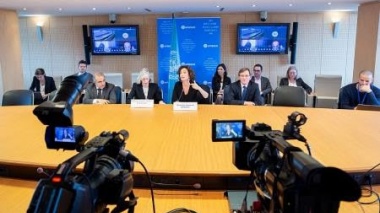The representatives of Iran Ministry of Science, Research and Technology Joined to:
In response to school and university closures to control the spread of COVID-19, UNESCO convened a global videoconference of high education officials on Tuesday 10 March 2020 to step up the emergency response and share strategies to minimize learning disruption worldwide. 72 countries were represented including representatives from Iran, China, Croatia, Egypt, France, Italy, Lebanon, Mexico, Nigeria, Japan, and the Republic of Korea, to learn lessons from these countries due to the recent crisis in the world.
The representatives of Iran Ministry of Science, Research and Technology, Prof. A. Khaki Sediqh, the Deputy Minister of Education and Prof. H. Salar-Amoli, the Acting Minister in International Cooperation having been joined the above WebVC, emphasized on the impact of the COVID-19 crisis on education, and elaborated on the Iran MSRT preparedness and necessary national commitments and policy responses due to the UNESCO-COVID-19 Emergency Task Force.
Iran MSRT representatives also indicated that from the very beginning and detection of COVID-19 in Iran, a National Ad-Hoc Committee was organized proceeding to set sub-working groups in the Ministry and at the main universities in each province in order to monitor the latest conditions and manage the crisis across the country.
Immediate practical and force tasks such as the closures of schools, universities and research Institutes, finding solutions, technical awareness, distance and e-learning and learning through Radio, TV, Internet and social networks in the country are of the alternative solutions to assure the continuity of safe learning and education in the country.
Iran MSRT representatives also emphasized that around 800,000 school teachers have been trained to continue safe education by internet and social networks and almost 5 million students participated in distance learning.




